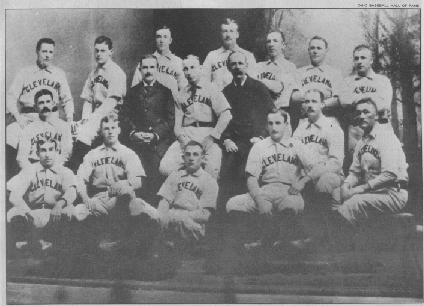
10 Ways to Get More Done…Without Working 24 Hours Per Day
 I am amazed at how some people get so much done during the course of a day or a week. Others say the same thing to me. Yes, I get quite a few things accomplished each week, but I am nowhere near an “expert” on it.
I am amazed at how some people get so much done during the course of a day or a week. Others say the same thing to me. Yes, I get quite a few things accomplished each week, but I am nowhere near an “expert” on it.
However, I have learned a few simple things that help me get more done, and still have time for family and fun. In other words, you don’t have to work 24/7/365, but you can still get things done. These are not earth-shattering, but they work for me. Maybe they (or a variation of them) will work for you.
1. Hit the Ground Running. I get to my office and work for 20-30 minutes with no distractions. In that time, I am usually able to do a few tasks that have been on my mind that morning. Only after that time is done do I go in and check my mailbox and talk with our secretary. A lot of folks come in and visit with everyone, then wonder where the morning went!
2. Work in “Chunks” of Time that are Good for You. I have learned that I work well for about 30 minutes stretches. I can work longer (and at times I work much longer periods), but my brain usually starts to tire after about 30 minutes of study, reading, writing, and outlining. What I have learned, though, is that, for those 30 minutes, I can basically go “all out.” Then….
3. Learn to Take Useful Breaks. For me, this involves a couple of things. One “break” is to get a drink of water and get out of my office for a couple of minutes. Another is to just walk around for a couple of minutes, then come back and answer emails or do other simple tasks. Breaks are important, but should not dominate your time! Learn to take short breaks, but ones that help you work better when they are over.
4. Do Hard Things First. I love studying and writing sermons, but it is harder for me to do than other parts of my job (reading, making phone calls, visiting, etc.). So, I do it first. I nearly always do most of my sermon preparation in the morning (unless I need to continue on into the afternoon). Many people do easy things first, and then have no mental energy left to do things that are harder. Get those harder things done first. And, remember, what is “hard” for you may not be for others.
5. Go Out of Routine Sometimes. I am a firm believer in routines, and I work far better when I follow the same basic structure for my day and week. However, I have also noticed that it is good for me to have my schedule blown up sometimes (but not too often!). It causes me to rethink how I work and it helps me focus more sharply on what needs to be done. Often this will be done for you (sickness, death in a family, a speaking engagement, etc.), but you may need to “schedule” a “schedule blow up!”
6. Find Hobbies that Help Your Job. For me, that is obviously reading and listening to podcasts. I love to read, but I also try to read more books that are associated with the Bible than books that are not. One reason is that I love reading those volumes is that I just like learning about the Bible and related matters. Another reason, though, is that it helps me in my work. The same is true of many of the podcasts I listen to. Having my mind focused on matters of religion helps me as I study and focus on a text or topic for a sermon or Bible class.
7. If You are Struggling to Get One Thing Done, Do Something Else. How often do we get “stuck” on a project (in my line of work, a sermon or bulletin article) and just sit there, hoping some great thought will finally come to us. It is amazing how much time we can waste just waiting for some amazing thought to come to us. Move on to something else. For me, that often means working on a different part of a sermon, or doing some “general” study, or working on a Bible class for awhile, or making a visit or phone call. Often, when I change my focus for a few minutes, my mind is then able to focus on what I need to get done. After all, don’t we all say, “There’s always something to do”? Then use that to your advantage.
8. Start Now! That old thing you were told in high school and college continues to be true. Procrastination kills productivity. You don’t have to complete a project months ahead of time, but it is good if you can see progress over several weeks or even months.
9. Cut or Delegate Where Possible. Do you do things that are not part of your job description? Why? The Lord set up the Church with elders to oversee, but also put deacons in place to carry out various works and projects. That is a good outline for our working lives. If it isn’t being productive, don’t do it. Or, if you aren’t qualified or competent in a certain area, delegate it if at all possible. This does more than frees you up in time. It will also free up your mind to stay more focused on your primary task.
10. Go home. No, I’m not saying to steal from your employer or to break your contract. What I am saying is that we far too often work extra hours (and even days) for which we really are not paid, while our family is at home waiting on us to come home. Why are we cheating our family? Go home! That project will still be there tomorrow, or after the weekend. Which would you rather be your legacy: “He worked long hours?” or “He was there for his family.” And, trust me, when you go home and spend that quality time with your family and enjoying your hobbies, your mind will be more ready to face the next day at work.
—————————————
What would you add?



3 Comments
Cynthia Pope
This was really good for me Adam… I hope to apply it to my daily stuff\.
Pingback:
Pingback: